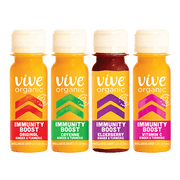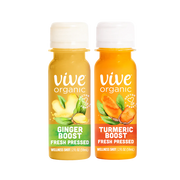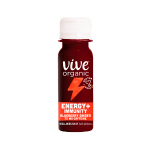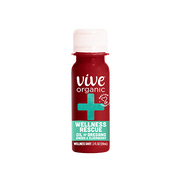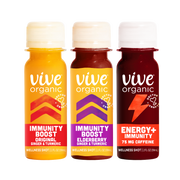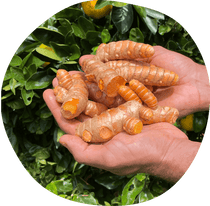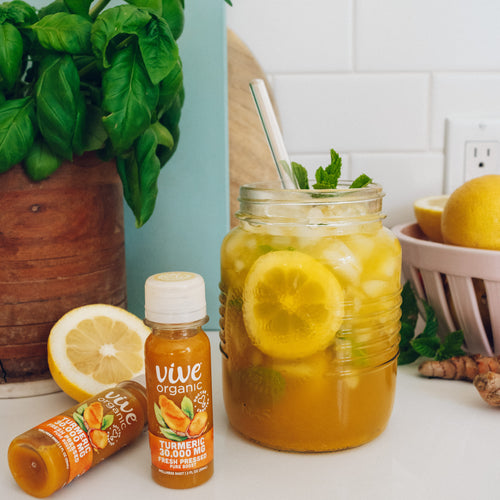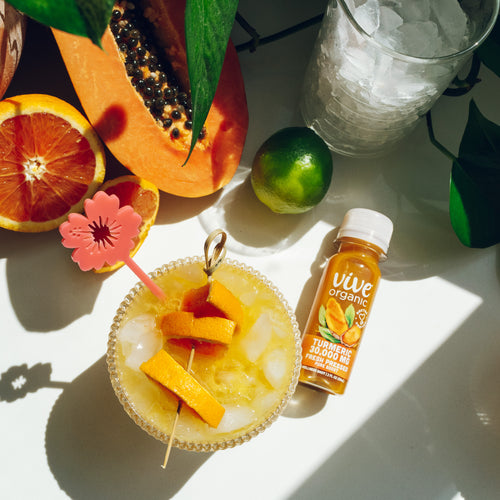If you’re looking to consume foods rich in antioxidants, along with essential nutrients such as vitamins, minerals, fiber, and phytochemicals, then you’ll enjoy learning about how a balanced diet can provide this nutrient-dense composition. This article also focuses on providing you with an understanding of the role that antioxidants may play in your cellular health, immune system, healthy aging, and overall health.
Defining Antioxidants
Antioxidants are important nutrients found in many foods that help support our bodies from free radicals. Over time, free radicals can contribute to oxidative stress, which may lead to cellular damage, affecting our overall health and well-being.1
When you think of antioxidants, you might picture colorful fruits and vegetables such as berries, oranges, spinach, kale, and broccoli. These foods are rich in antioxidants.
Research has demonstrated that eating more fruits and vegetables is linked to a lower risk of many chronic diseases. The antioxidant phytochemicals in these foods are believed to contribute to these health benefits.2
Dietary Choices
If you think it’s time to assess your present dietary intake, start by looking at your plate. No plate will ever be nutritionally perfect, but it’s important to include a variety of foods from all the food groups. Eating foods rich in antioxidants is essential for your health, so here are some tips to boost your intake while eating balanced and staying hydrated.
- Aim for variety. Include plenty of fruits, vegetables, nuts, and whole grains in your diet. Focus on colorful options like oranges, carrots, berries, leafy greens, and bell peppers, since they are foods rich in antioxidants. Add our organic, cold-pressed wellness shots to your daily rotation of nutrient-dense food choices.
- Plan your midday snacks. Schedule some small changes, like planning healthy snacks including your favorite vegetables, fruits, seeds, or nuts. These foods provide essential nutrients like fiber, vitamins, and protein, all of which support your overall health.
- More color. A diet rich in antioxidants supports your immune system and may help reduce the risk of long-term health problems. It’s important to make these fresh choices a regular part of your diet.
Classification of Antioxidants
Antioxidants can be classified into different groups.
Vitamins
Vitamins such as C and E are both considered vital for their antioxidant properties. They support the immune system and protect the body from the potential damage of excessive free radicals.
Minerals
Some minerals like selenium and zinc are top contenders for also protecting our cells. Selenium supports a variety of enzymatic reactions necessary for processes in the body. Together, zinc and selenium duo work to strengthen the immune system.
Polyphenols
Polyphenols are a plant-based group of phytochemicals or phytonutrients that are also known for their protective role in our cells. These phytochemicals fight off and also dismantle free radicals.3 Some polyphenols include carotenoids (beta carotene, lutein, and lycopene), flavonoids (anthocyanins, flavanols, and flavones), glutathione and resveratrol.
Sources of Antioxidant-rich Foods
Some foods high in antioxidants include the following.4
- Vitamin C: strawberries, oranges, red, orange and yellow bell peppers, kiwi, and broccoli
- Vitamin E: spinach, avocados, hazelnuts, sunflower seeds, and salmon
- Selenium: eggs, whole grains, pork, beef, tuna, Brazil nuts
- Zinc: oysters, beef, blue crab, pumpkin seeds, fortified cereals, nuts
- Carotenoids: sweet potatoes, spinach, pumpkin, carrots, herring, and milk
- Flavonoids: blackberries, blueberries, grapes, apples, onions, black tea, and dark chocolate
There is also a wide variety of herbs and spices that have been identified as sources of various phytochemicals, many of which possess powerful antioxidant activity. Some well-known spices and herbs include ginger, curcumin, cayenne, clove, cinnamon, oregano, peppermint, and parsley.5
Potential Health Benefits of Antioxidants
Eating foods rich in antioxidants is an important aspect of a balanced diet, as they provide essential nutrients that positively influence health outcomes. Many studies have focused on dietary supplements alongside food sources of antioxidants. Research has found positive links between antioxidants and health promotion in several key areas.
Eye Health
Key antioxidants and nutrients such as beta carotene, lutein and zeaxanthin support eye health. Two main carotenoids found in the retina help to keep the retina healthy.6 These carotenoids include lutein and zeaxanthin. These polyphenols function as antioxidants by providing protection to eye tissues.6,7
Cellular Health
If aging gracefully is on your checklist, then you like most of us are interested in turning back the clock to our more youthful days. Though we cannot erase the wrinkles or the spots from the sun we may have, we can move forward in a positive direction in protecting our cells. Reducing our exposure to external pollutants, and harmful rays of the sun is a good start, Endogenously, our bodies can prioritize and protect the DNA of our cells, as well as support our mitochondria, by reducing our cells’ exposure to free radicals.7,8
Cognitive Health
Some studies suggest that beta-carotene can help support cognition due to its antioxidant properties. Some studies that looked at several antioxidants, including beta carotene, found that taking beta carotene supplements may lead to small improvements in cognitive function and memory.9
Addressing Nutrient Gaps
Sometimes, your meals might not cover all your nutritional needs. If you're concerned about your health, talk to your healthcare provider (HCP) about whether a multivitamin with minerals and antioxidants could help fill any gaps in your diet. Keep in mind that not all multivitamins are the same. Your age and health requirements will influence what you need to reach your nutritional goals.
Key Takeaways
To increase the amount of antioxidant-rich foods in your diet, focus on eating whole fruits and vegetables, nuts, seeds, and whole grains. There is also an advantage of adding herbs and spices to your diet such as ginger, turmeric, and cayenne. While it's important to understand more about antioxidants and healthy eating, taking small, manageable steps to improve your diet is key to promoting positive health changes.
Disclaimer: This blog contains promotional content about our products. The information provided in this blog is for educational and informational purposes only and should not be construed as medical advice. While the nutritional information and health tips shared here are based on published studies and expert insights, they should not replace advice and treatment from a healthcare professional. Always consult a qualified healthcare provider with any questions you may have regarding a medical condition or health objectives.
References
- Editors, B. D. “Antioxidant - Definition, Types, Benefits and Quiz.” Biology Dictionary, 2 May 2017. https://biologydictionary.net/antioxidant/ Accessed 16 Jan. 2025.
- Zhang, Yu-Jie et al. “Antioxidant Phytochemicals for the Prevention and Treatment of Chronic Diseases.” Molecules (Basel, Switzerland) vol. 20,12 21138-56. 27 Nov. 2015. https://pmc.ncbi.nlm.nih.gov/articles/PMC6331972/
- Petre, Alina. “What Are Polyphenols? Types, Benefits, and Food Sources.” Healthline, 8 July 2019. https://www.healthline.com/nutrition/polyphenols Accessed 16 Jan. 2025.
- National Institutes of Health. “Dietary Supplement Fact Sheets.” Nih.gov, 2017. https://ods.od.nih.gov/factsheets/list-all/ Accessed 16 Jan. 2025.
- Yashin, Alexander et al. “Antioxidant Activity of Spices and Their Impact on Human Health: A Review.” Antioxidants (Basel, Switzerland) vol. 6,3 70. 15 Sep. 2017. https://pmc.ncbi.nlm.nih.gov/articles/PMC5618098/
- Khoo, Hock Eng et al. “Nutrients for Prevention of Macular Degeneration and Eye-Related Diseases.” Antioxidants (Basel, Switzerland) vol. 8,4 85. 2 Apr. 2019. https://www.ncbi.nlm.nih.gov/pmc/articles/PMC6520735/
- Arnarson, Atli. “Antioxidants Explained in Simple Terms.” Healthline, 12 July 2023. https://www.healthline.com/nutrition/antioxidants-explained Accessed 16 Jan. 2025.
- Rusu, Marius Emil et al. “Antioxidants in Age-Related Diseases and Anti-Aging Strategies.” Antioxidants (Basel, Switzerland) vol. 11,10 1868. 21 Sep. 2022. https://www.ncbi.nlm.nih.gov/pmc/articles/PMC9612360/
- Olsen, Natalie. “Benefits of Beta Carotene and How to Get It.” Healthline, 7 Feb. 2018. https://www.healthline.com/health/beta-carotene-benefits Accessed 16 Jan. 2025.
